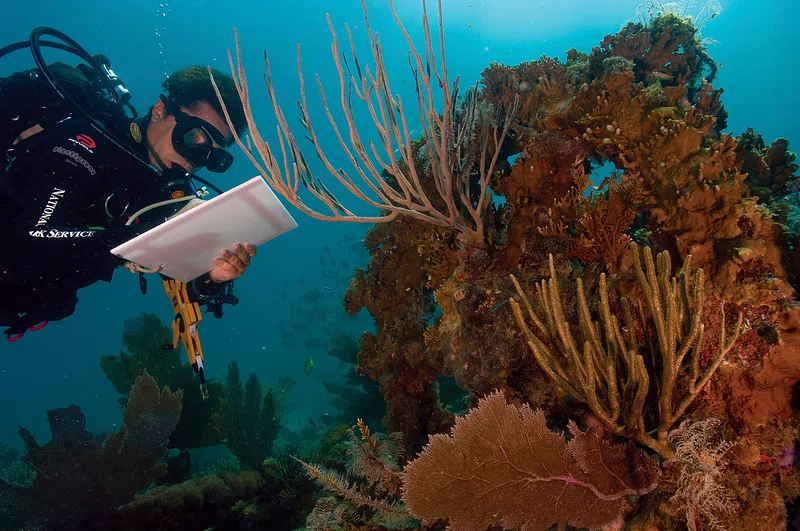
Conservation Efforts and Coral Reef Protection
In recent years, the conversation around conscious eating, conservation efforts, and coral reef protection has gained immense importance. These interconnected topics not only touch upon our individual actions but also highlight the collective responsibility we bear in ensuring the health of our planet for future generations. Whether through grassroots conservation efforts or sustainable eating habits, we are learning that every small step counts. NGOs and environmental organizations worldwide are playing a pivotal role in raising awareness and driving conversations that lead to impactful changes in how we live, eat, and protect the natural world. Learn more about coral reef protection on Reef Watch.
Table of Contents
The Power of Conscious Eating
At the heart of sustainable living lies the concept of conscious eating. This movement encourages individuals to make mindful food choices that not only benefit their health but also the environment. Conscious eating involves understanding where our food comes from, how it is produced, and the impact it has on the planet. By choosing sustainably sourced products, reducing food waste, and opting for plant-based diets, we can minimize our carbon footprint and contribute to conservation efforts worldwide.
One of the core principles of conscious eating is reducing our reliance on animal products, which are often resource-intensive to produce. By supporting local, organic farms and avoiding processed foods, we help preserve ecosystems that are vital to maintaining biodiversity. As conservation efforts become more focused on sustainable agriculture and reducing deforestation, conscious eating is a practice that directly impacts the health of our planet. Learn more about the impact of food choices on the environment at Foodprints.
Global Conservation Efforts: A Call for Action
Conservation efforts are critical to safeguarding the world’s biodiversity, and they range from reforestation programs to wildlife protection. One key area of focus is the protection of marine ecosystems, which are increasingly under threat due to pollution, overfishing, and climate change. Conservation efforts targeting coral reefs are particularly urgent, as these fragile ecosystems support more than 25% of marine life.
NGOs such as the World Wildlife Fund (WWF) and Greenpeace have been instrumental in driving global conservation campaigns. These organizations raise awareness, lobby governments, and fund projects that restore and protect ecosystems critical for the survival of both wildlife and humans. Conservation efforts in marine conservation have focused on the protection of vital areas like coral reefs, emphasizing the need for policy changes and sustainable tourism practices. Learn more about global conservation efforts at The Nature Conservancy.
Coral Reef Protection: A Vital Effort
Coral reefs, often referred to as the “rainforests of the sea,” are not only beautiful but also critical to marine biodiversity. Unfortunately, these ecosystems are rapidly deteriorating due to climate change, ocean acidification, and human activity. The urgent need for coral reef protection has been a focal point for many conservation efforts around the globe. As the primary defenders of these delicate ecosystems, NGOs are leading the charge in both conservation and restoration initiatives aimed at preserving coral reefs.
Efforts such as coral reef restoration, sustainable fishing practices, and the reduction of harmful pollutants are some of the ways in which we can help protect these vital ecosystems. Coral reefs not only provide habitat for over 25% of marine life but also protect coastal communities from storm surges and erosion. Joining the conversation and supporting initiatives like those from the Coral Triangle Initiative is essential to creating a future where coral reefs thrive. Learn more about coral reef protection at Coral Cay Conservation.
Conversations for Change: The Role of NGOs
In the battle for sustainability, conversations are key to inspiring change. NGOs and environmental organizations play a crucial role in facilitating these conversations, not only raising awareness but also advocating for meaningful policy changes. The conversations they spark can help shape public opinion and encourage individuals, businesses, and governments to take action.
Organizations like Surfrider Foundation and Ceres work to bring environmental issues into the spotlight, educating people on the importance of conscious eating, conservation, and protecting the planet’s precious ecosystems. These conversations often lead to grassroots movements that empower local communities to take direct action. They also provide platforms for businesses and policymakers to collaborate and implement sustainable practices. Learn more about impactful environmental conversations at Earth Day.
Key Steps Toward a Sustainable Future
As individuals, we can take several key steps toward a more sustainable future, including:
- Choosing sustainable and ethical food sources by embracing conscious eating principles.
- Supporting conservation efforts that protect endangered species and ecosystems, especially coral reefs.
- Engaging in conversations about environmental protection, both online and in our communities.
- Participating in or donating to NGOs that focus on coral reef protection and other conservation initiatives.
In conclusion, whether it’s through conscious eating, supporting NGOs, or advocating for stronger conservation policies, each of us has a role to play in building a sustainable future. By making informed choices and engaging in important conversations, we can help protect the planet’s most precious ecosystems, including coral reefs, and ensure a healthy, thriving world for generations to come.
Learn more about sustainable living and coral reef protection from organizations like WWF and Greenpeace.
